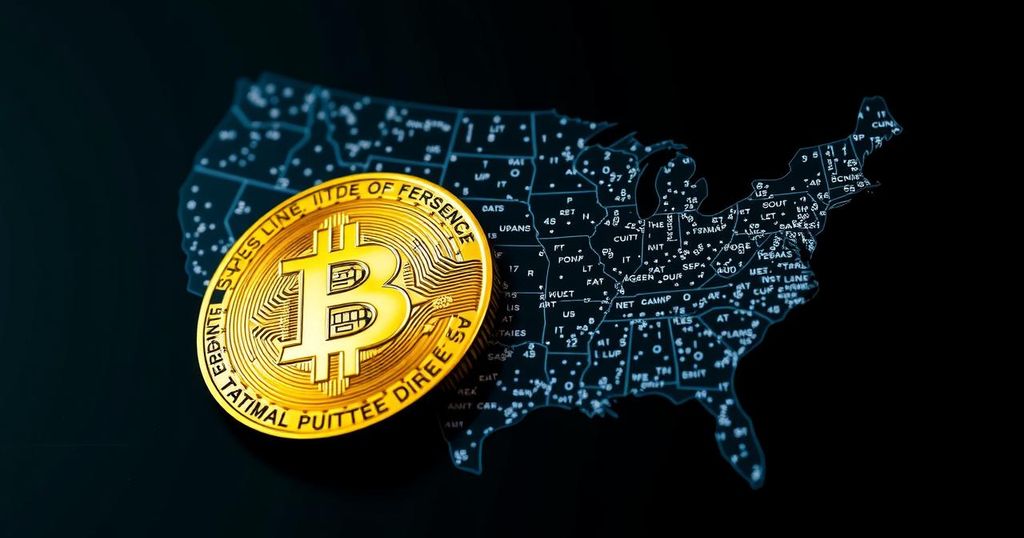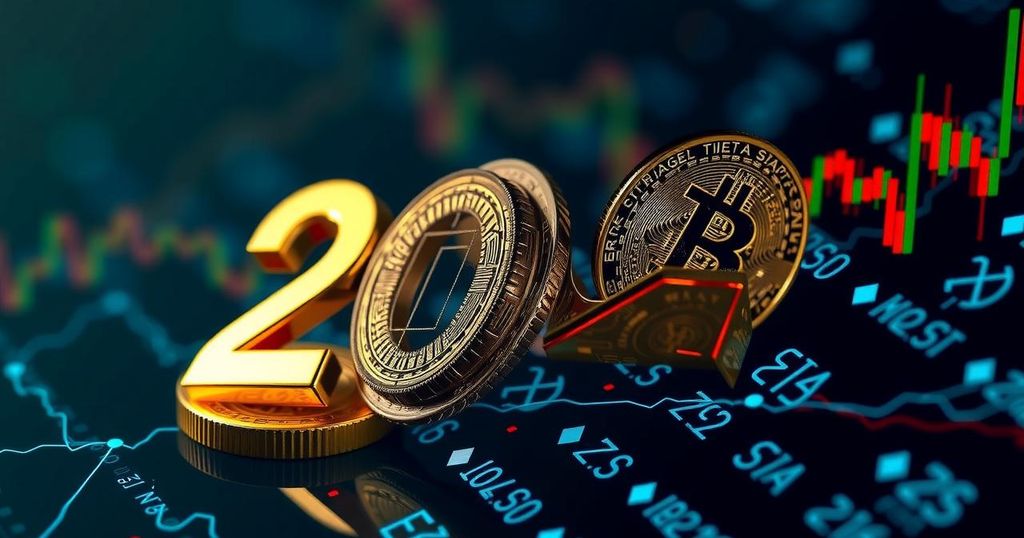The Implications of a US Bitcoin Reserve Under Trump’s Administration
The anticipated creation of a national Bitcoin reserve under Donald Trump has sparked enthusiasm among cryptocurrency supporters, who see it as a means to manage national debt and bolster the U.S. dollar. Proposals exist, such as Senator Cynthia Lummis’s BITCOIN Act, to gather 1 million Bitcoins, but obstacles related to volatility, public acceptance, and legislative support remain. Predictions regarding Bitcoin’s valuation illustrate the potential impact of such a reserve on the cryptocurrency market.
The prospect of the United States under former President Donald Trump acquiring and holding Bitcoin has generated significant interest among cryptocurrency advocates. Supporters believe that a national Bitcoin stockpile could effectively aid in managing national debt and enhance financial stability. Senator Cynthia Lummis has proposed a plan under the BITCOIN Act to amass 1 million Bitcoins over two decades, potentially allowing the country to own 5% of the total Bitcoin supply. While proponents laud Bitcoin’s appreciating value as a hedge against inflation, others, like Ananya Kumar from the Atlantic Council, express skepticism regarding Bitcoin’s volatility and its correlation with the stock market. There are also concerns about public acceptance and congressional support for such an initiative. Although optimistic investors anticipate the establishment of a Bitcoin reserve before 2026, complexities concerning governance and economic implications remain a challenge. Michael Novogratz, a cryptocurrency billionaire, predicts that if the U.S. does establish a Bitcoin reserve, it could elevate Bitcoin’s value significantly, potentially surpassing other major asset classes. Nevertheless, the broader implications of Bitcoin as a national reserve asset are still being debated, particularly in comparison to traditional reserves like oil.
The discussion surrounding a potential Bitcoin reserve for the United States arises amid Donald Trump’s anticipated return to the presidency, during which cryptocurrency advocates expect substantial advancements in the market. Bitcoin’s finite supply and historical appreciation lend merit to arguments for its inclusion in national reserves as a means of financial stabilization. Senator Cynthia Lummis’s BITCOIN Act highlights a strategic approach to reserve accumulation. However, this proposal also faces skepticism regarding the volatility of cryptocurrencies and public sentiment regarding government involvement in such emerging technologies.
In conclusion, while the idea of the United States creating a Bitcoin reserve under the Trump administration presents a compelling opportunity for potential financial growth and national debt management, numerous challenges, including public acceptance, congressional support, and economic implications, require careful consideration. The cryptocurrency sector remains optimistic about the possibilities, but significant questions persist about what a national Bitcoin reserve would mean for the U.S. economy and global market dynamics.
Original Source: markets.businessinsider.com








Post Comment